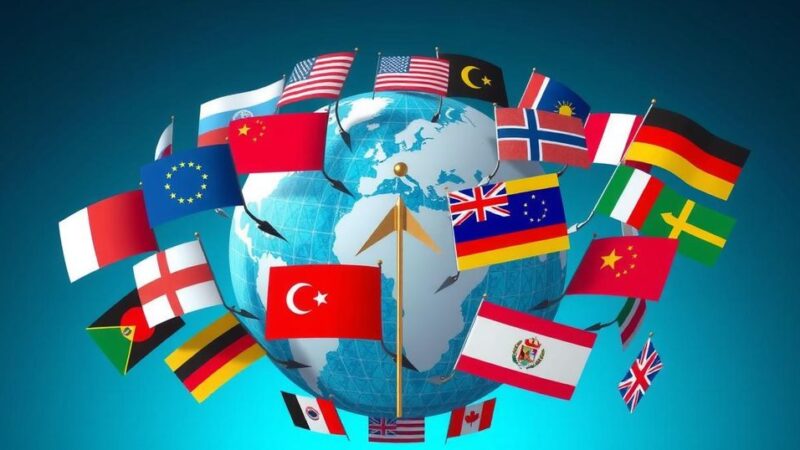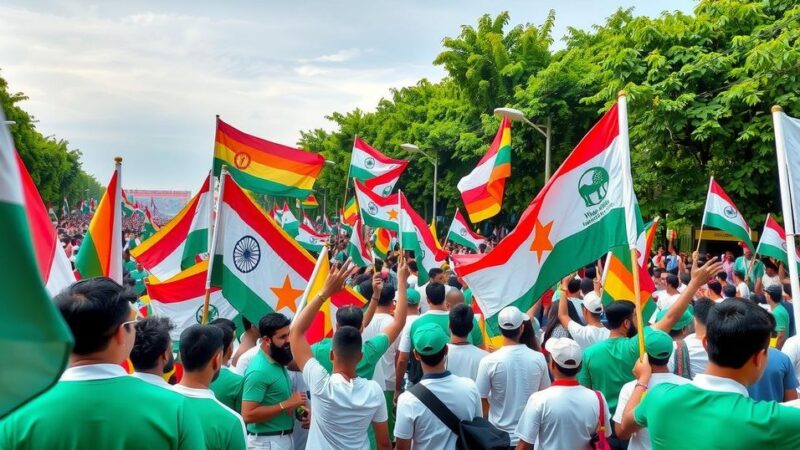Bougainville aims for independence from Papua New Guinea following a 2019 referendum. Despite overwhelming support for secession, political delays in PNG hinder implementation. Key challenges include establishing governance, economic self-sufficiency, and addressing environmental concerns from past mining practices. International support, particularly from the U.S., is being sought, as Bougainville navigates its complex path towards potential statehood.
Bougainville is recognized as a potential new nation, with aspirations to achieve independence from Papua New Guinea (PNG). Since the 2019 referendum, in which 97.7% of Bougainvilleans voted in favor of secession, the implementation has faced significant obstacles. The pathway to independence for the 300,000 residents remains fraught with political and practical challenges, including a lack of parliamentary action in PNG.
President Ishmael Toroama champions independence as a primary goal but encounters parliamentary stagnation in Port Moresby that hinders the realization of the referendum’s outcome. Establishing credible institutions and financial systems necessary for a self-sufficient state poses additional complications. Bougainville’s strong secessionist sentiment stems from distinct cultural identities and a history of resource exploitation and perceived political neglect.
Initially declaring independence in 1975, Bougainville was incorporated into PNG, which continued to face turmoil over resource management, culminating in a civil war that lasted until 2001 and resulted in substantial loss of life and infrastructure. The subsequent peace agreement led to the creation of the Autonomous Bougainville Government and the promise of a referendum, which was ultimately conducted in 2019.
Despite an overwhelming vote for independence, the non-binding nature of the referendum necessitates parliamentary ratification in PNG, which has not progressed effectively. The Era Kone covenant signed in April 2022 aimed to set timelines for parliamentary discussions, but deadlines have approached with little action.
Key hurdles remain regarding the voting threshold needed for ratification, as disagreements persist between the ABG and PNG over whether a simple majority suffices or a two-thirds majority is required. PNG’s concerns regarding the implications of secession on its authority and regional precedent contribute to reluctance on this pivotal issue.
While the clarity of the referendum results signifies a strong desire for independence, challenges persist. Bougainville’s government recently appointed Sir Jerry Mateparae to mediate discussions aimed at resolving the deadlock. However, Bougainville lacks the structural and fiscal capabilities essential for independent governance, relying heavily on central government support for public services and its economy.
Limited revenue streams highlight the fiscal challenges, with recent studies estimating that an independent Bougainville would need two to three times its current budget. Prime Minister James Marape emphasizes the need for a cautious approach during this transitional phase, citing economic self-sufficiency as a critical prerequisite for independence.
Moreover, essential public services, including healthcare and education, suffer from chronic underfunding, aggravating the challenges faced by the island’s youth and citizenry. The Autonomous Bougainville Government is making strides to correct these issues, including recent agreements that expand its governance capabilities.
With significant mineral resources, including gold and copper reserves, Bougainville is looking to re-explore mining opportunities, particularly at the Panguna mine. While the ABG aims to involve local stakeholders in harnessing these resources, past environmental devastation continues to be an area of concern.
Additionally, President Toroama is pursuing international investment, including possible partnerships with Chinese firms, while actively seeking U.S. support, indicating Bougainville’s strategic significance within the broader regional dynamics of U.S.-China rivalry. The upcoming elections pose further uncertainty, with potential shifts in leadership impacting Bougainville’s trajectory.
Bougainville’s aspiring nationhood is rife with challenges yet underscored by a strong resolve among its people, rooted in the legitimacy of their referendum. As the region continues its quest for independence, the wait for recognition and stability remains ongoing.
Bougainville’s quest for independence encapsulates a complex interplay of historical grievances, sociocultural identity, and contemporary political dynamics. Despite overwhelming public support for secession, political inertia within Papua New Guinea presents critical obstacles. The challenges of establishing self-sufficiency and efficient governance highlight the multifaceted nature of nation-building endeavors. As Bougainville progresses, both internal developments and external geopolitical considerations will significantly influence its future.
Original Source: thediplomat.com






